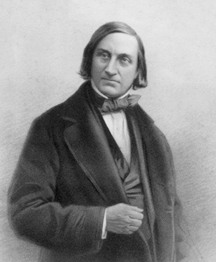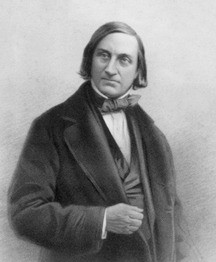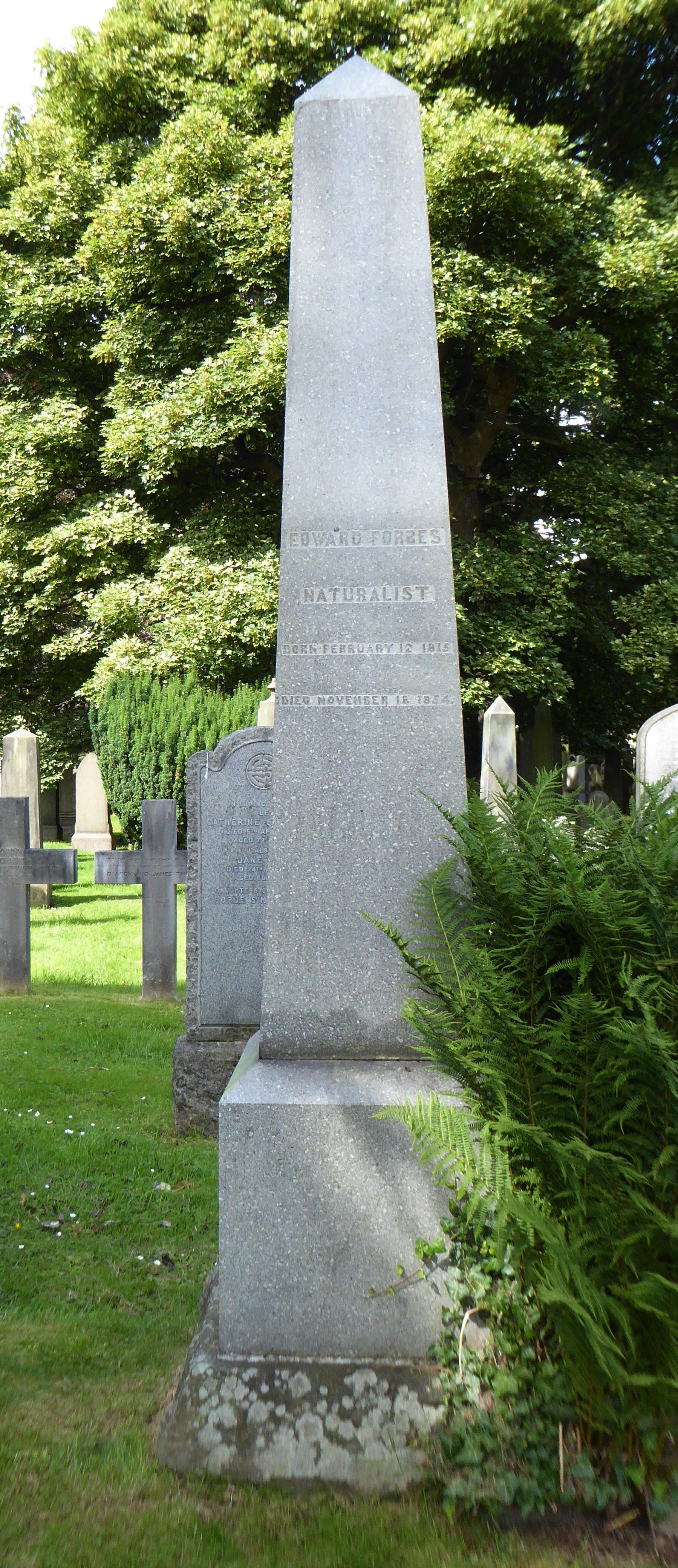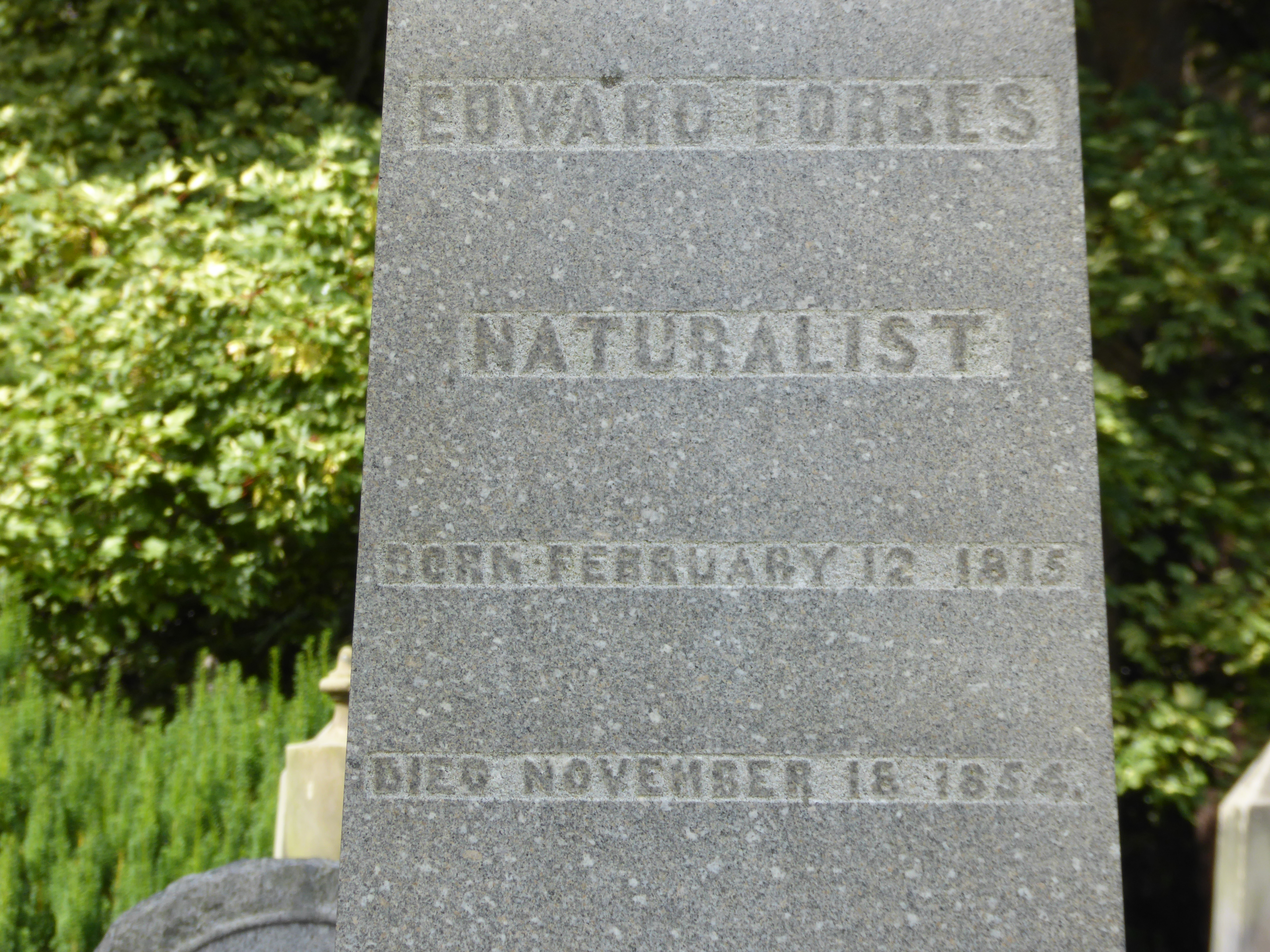Edward & Jane (Teare) Forbes,
believed to be a banker
Edward was a pioneer in the field of Natural History, specifically in Biogeography and Palaeontology and wrote many important scientific works on the subject
(full copies of which may be found on archive.org)
He married Emily Marianne Ashworth, daughter of
General Sir Charles Ashworth, on 31 Aug 1848 - they had two children
His comprehensive biography appears in the Dictionary of National Biography, Vol 7, beginning on page 388
He died at his residence in Wardie, near Edinburgh of disease of the kidneys
His obituary appeared in the Illustrated London News, 25 Nov, 1854:
PROFESSOR EDWARD FORBES
THIS distinguished philosopher died at his residence, at Wardie, near Edinburgh, on Saturday last, in the 39th year of his age. It is not too much to say that science has not lost a nobler son during the present century; and there are none who enjoyed the advantages of his teaching or the honour of his friendship but will deeply feel the calamity which has befallen them.
At a very early age, as a student in the University of Edinburgh, he gave strong evidence of talents of a very superior order. The Botanical Society of Edinburgh – one of the most flourishing scientific bodies in the kingdom – owes its origin to the late Professor, and a few of his fellow students, more than one of whom were his late colleagues.
Though Natural History, with the adjunct sciences of Botany, Geology, and Comparative Anatomy, were Professor Forbes' leading pursuits, he was no less distinguished by all the accomplishments which become a gentleman and a man of letters.
After delivering a course of extra-academical lectures of Natural History, he proceeded to the East, as Naturalist to a scientific expedition. To this expedition are due not a few important contributions to science, and, we have to regret it, the early death of the Professor.
Returning to London, he, with credit to himself and advantage to the University, occupied the Chair of Botany in King's College. The Geological Society acknowledged his high merit by electing him to every honorary office which it could confer; and, on the establishment of the School of Practical Geology and Designs, he was at once put at the head of the Paleontological department.
The admirable arrangement of British fossils in the Museum, in Jermyn-street, is a portion of the fruits of his labours in this situation. Last April, on the death of the venerable Professor Jameson, Professor Forbes, to the delight of every one who knew him, had the appointment conferred upon him.
In May he commenced the usual summer course of lectures, and by his energy, his clearness, and his comprehensiveness, did much to revive and strengthen in Edinburgh the taste for natural history.
Though suffering from disease, he, on the 2nd of November, again opened his class; but could only continue for six days. He died, after three day's illness, leaving a blank in the University of Edinburgh which will be difficult to fill up.
Next week we shall engrave a Portrait of the lamented Professor: to be accompanied by a more detailed account of his invaluable services to science.
Edward & Jane (Teare) Forbes,
believed to be a banker
Edward was a pioneer in the field of Natural History, specifically in Biogeography and Palaeontology and wrote many important scientific works on the subject
(full copies of which may be found on archive.org)
He married Emily Marianne Ashworth, daughter of
General Sir Charles Ashworth, on 31 Aug 1848 - they had two children
His comprehensive biography appears in the Dictionary of National Biography, Vol 7, beginning on page 388
He died at his residence in Wardie, near Edinburgh of disease of the kidneys
His obituary appeared in the Illustrated London News, 25 Nov, 1854:
PROFESSOR EDWARD FORBES
THIS distinguished philosopher died at his residence, at Wardie, near Edinburgh, on Saturday last, in the 39th year of his age. It is not too much to say that science has not lost a nobler son during the present century; and there are none who enjoyed the advantages of his teaching or the honour of his friendship but will deeply feel the calamity which has befallen them.
At a very early age, as a student in the University of Edinburgh, he gave strong evidence of talents of a very superior order. The Botanical Society of Edinburgh – one of the most flourishing scientific bodies in the kingdom – owes its origin to the late Professor, and a few of his fellow students, more than one of whom were his late colleagues.
Though Natural History, with the adjunct sciences of Botany, Geology, and Comparative Anatomy, were Professor Forbes' leading pursuits, he was no less distinguished by all the accomplishments which become a gentleman and a man of letters.
After delivering a course of extra-academical lectures of Natural History, he proceeded to the East, as Naturalist to a scientific expedition. To this expedition are due not a few important contributions to science, and, we have to regret it, the early death of the Professor.
Returning to London, he, with credit to himself and advantage to the University, occupied the Chair of Botany in King's College. The Geological Society acknowledged his high merit by electing him to every honorary office which it could confer; and, on the establishment of the School of Practical Geology and Designs, he was at once put at the head of the Paleontological department.
The admirable arrangement of British fossils in the Museum, in Jermyn-street, is a portion of the fruits of his labours in this situation. Last April, on the death of the venerable Professor Jameson, Professor Forbes, to the delight of every one who knew him, had the appointment conferred upon him.
In May he commenced the usual summer course of lectures, and by his energy, his clearness, and his comprehensiveness, did much to revive and strengthen in Edinburgh the taste for natural history.
Though suffering from disease, he, on the 2nd of November, again opened his class; but could only continue for six days. He died, after three day's illness, leaving a blank in the University of Edinburgh which will be difficult to fill up.
Next week we shall engrave a Portrait of the lamented Professor: to be accompanied by a more detailed account of his invaluable services to science.
Advertisement
Advertisement









